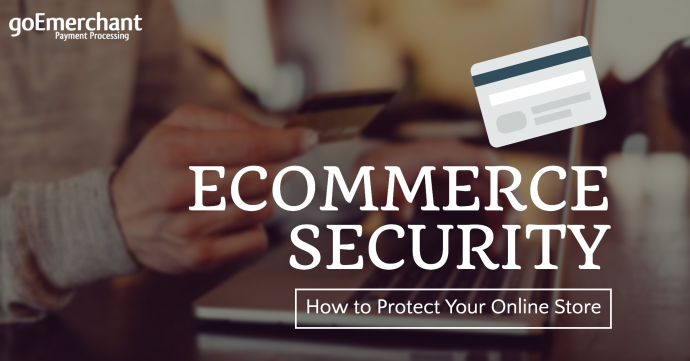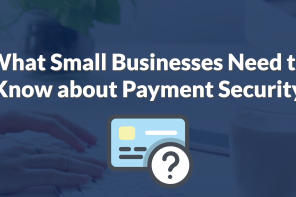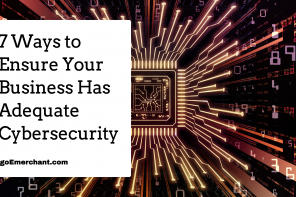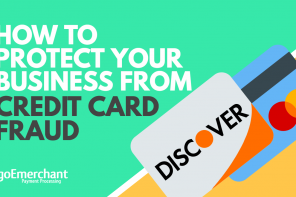As more sales occur on the internet and businesses are growing online faster than ever before, digital card-not-present fraud attempts are anticipated to increase as well.
While integrating EMV into physical POS systems has combatted many payment threats in storefronts, this has shifted fraudsters focus to online channels.
As a result, businesses now need more sophisticated security measures to fully protect them from critical threats. The consequences of not protecting your ecommerce website from threats are poor customer experiences, regulatory fines, and potential loss of revenue.
Luckily, small businesses have access to industry-leading security tools that used to be reserved for corporations. Now, being small doesn’t mean your ecommerce site has to be left unprotected. Instead, there are some simple, but impactful ways you can proactively get ahead of critical threats.
Rely on an SSL Certificate
When your ecommerce site handles sensitive information such as credit cards, it’s essential you have an SSL certificate to protect that data. An SSL keeps this sensitive information protected by encrypting the data that’s entered on your site. Particularly at the checkout stage, it’s critical to have this built-in security feature. An SSL information protect s the data between the customer, their computer, the server, and your online payment processing systems. Without an SSL certificate, this data is left vulnerable for other computers to intercept this information.
Encryption protects sensitive data by making the data unreadable to those without a secret decryption key. Data encryption, which is incorporated into an SSL Certificate, is the first step in protecting your cardholders’ information. Encryption has laid the groundwork for today’s tokenization methods that have been viewed as a more cost-effective and more permanent method for protecting cardholders’ credentials. Businesses can also display a badge stating their site has an SSL Certificate, which can give shoppers peace of mind their payment data is safe.
Partner with the Right Payment Gateway
Protecting your ecommerce site has a lot to do with the companies you choose to partner with. Recently, we dove into why you should choose a boutique payments processing partner. Affordability and simplicity were two of the key points, but security was also on top of that list.
Working with the right payment processor enables you to fully protect your customers’ sensitive information. This comes down to having the right online payment gateway to authorize the transfer of funds between the buyer and the seller. While the function of a payment processor is to transmit the actual payment data, the authorization side of the payment puzzle is all part of the payment gateway process. For ecommerce merchants wanting to power a frictionless payment experience with the necessary security protocols, having the right processor and gateway matter.
For example, when working with goEmerchant to handle your processing and gateway needs, you’ll be equipped with the latest PCI standards, E2E encryption, and tokenization of your payment data. PCI compliance is an important part of payments security. To start, adhering to PCI compliance requirements isn’t optional. For businesses that accept payment online, PCI compliance must also be followed. Encryption and tokenization are additional perks goEmerchant provides to protect your online payment systems. Your payment processing provider should be able to check off all three boxes to ensure maximum security for your business.
Integrate Alternative Payment Methods
Credit cards have topped the headlines for being associated with data breaches at businesses of all sizes. This is why security is top of mind for all businesses — especially those who allow their customers to transact online. Beyond credit cards, your business should consider accepting alternative payment methods such as mobile payments and eCheck payments. Mobile payments solutions often come with features like end-to-end encryption, specialized logins and authorizations, PCI compliance standards and encrypted mobile POS readers.
Instead of forcing your customers to pay online with a credit card, giving them options can help improve customer satisfaction — while giving them more secure methods to pay. Relying on more sophisticated digital and mobile payments software and devices also provides merchants with an extra layer of security since no data is stored on the system.
With the right partner by your side, today’s options to integrate ecommerce security features are plentiful. From onboarding new payment methods, keeping up with the latest in security tools and implementing those tools across your payments systems, the trick to safeguarding your ecommerce site is getting ahead of the problems before they hit. Are you ready to get ahead and get protected?
Visit https://www.goemerchant.com/ecommerce to learn more.




